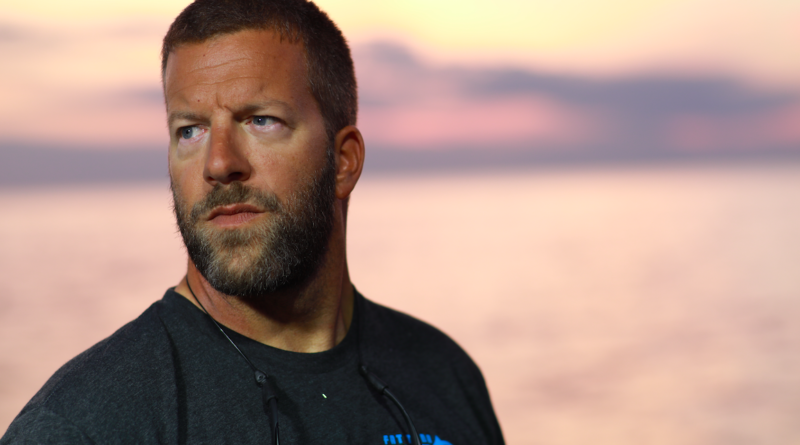INTERVIEWS: Captain Cook plies the waters off New England to win big on ‘Wicked Tuna’
Photo: Wicked Tuna features the adventures of anglers off the coast of Gloucester, Massachusetts. Captain Bob Cook stars in the new season. Photo courtesy of Nat Geo / Provided by press rep with permission.
The adventures of tuna fishers off the coast of Gloucester, Massachusetts, have been the subject of National Geographic’s hit series Wicked Tuna for the past several years. These anglers are serious about their business, heading out into the choppy waters to find the big one, earning money and credibility along the way.
On the new season of the reality series, which premieres Sunday, March 1 at 9 p.m., there’s a new captain amongst the ranks. Captain Bob Cook heads up the Fat Tuna boat, which he co-owns with his wife. It took a while for Cook to make it on the show, but apparently the third time’s a charm.
“They interviewed us right at the beginning and then a couple years after that,” Cook said in a recent phone interview. “We didn’t really make the cut on those two first interviews. We just became unavoidable because we kept being at the top of the fleet for years and years and years. I know that sounds completely cocky, but that’s just an honest answer. They needed people who could compete with these guys, and we fit the bill this time around. And I’m glad we did.”
When Cook joined the show, he immediately set his sights on one of the champions of the reality series: Captain Dave Carraro of the FV-Tuna.com boat. According to press notes, Carraro is seen as perhaps the most formidable angler in the fleet of boats that ply the waters off the coast of New England.
For Cook, his competitive spirit has been shaped over the course of many years growing up around boats and breathing the salty air of the ocean.
“I was a little wharf rat down at Cape Ann Marina when I was all around 5, 6, 7 years old,” he said. “My parents had a boat, and I used to watch the tuna fishermen come in, in awe basically. I always said, ‘I’d love that to be me someday.’ That turned into working on lobster boats when I was 10 or 11. I worked inshore and offshore on lobster boats all through high school and parts of after high school. I continued on lobstering, and then that turned into striper fishing and then tuna fishing. And I never looked back. Once that tuna bites for the first time, you’re done. It’s over. … It’s about the giant bluefin tuna from that point forward.”
Cook said he loves the fight that a bluefin tuna gives him and the crew, but his favorite part is actually the bite. He has worked so hard throughout his professional life to figure out how to trick the fish into taking the bait. When he sees that rod turn and bend over, and the line start screaming out into the waters, an adrenaline rush comes over him — a true goosebump moment.
“We’ve got a lot of experience in that area,” he said about the initial bite. “The way he either bites it and stops after a small initial run and then he just screams out drag, and that’s 40 to 50 pounds of drag he’s taking. And if he just keeps going without relenting whatsoever, you know he’s a big fish. About 50 percent of the time we can guess just off that initial bite the size of that fish.”
This expertise comes from years of dedicating himself to the craft of fishing — from those early experiences on the wharf of Gloucester (he was actually born and raised in nearby Beverly, Massachusetts) to his present-day dominance in the fleet.
“I can’t see myself ever living anywhere else, my wife and I,” Cook said. “It’s magical really. It’s hard to explain. You’ve got to sort of be out there, but I would much rather be out there than on land, I’ll tell you that.”
There have been many changes over the years to the fishery off the coast. Today’s government regulations are strict, but Cook is behind them because these laws help keep the bluefin healthy and numerous.
“It puts the focus squarely on preservation of the species,” the captain said of the regulations. “They’ve made a huge comeback, and there’s a reason for that. And that is because of the regulations, so we’re all for it. Whatever it takes to get this fishery sustainability, we’re all about it. This is our future we’re talking about here. We don’t want to overfish, and the United States does an incredible job of regulating its fisheries.”
Plus, more fish in the water means more competition on the boats, and Cook is all about the competition.
“There’s no doubt about it that there’s competition,” he said. “We can’t even sleep at night because we want to win so bad. We love the competition. … We come from families of being extremely competitive athletes and always wanting to win, so, yeah, we feel that out there day in and day out. And competing against these guys in this form on this show has really brought that competitive feel back into tuna fishing for us, and that’s huge. We love it.”
By John Soltes / Publisher / John@HollywoodSoapbox.com
Wicked Tuna returns with new episodes Sunday, March 1 at 9 p.m. on National Geographic. Click here for more information.

